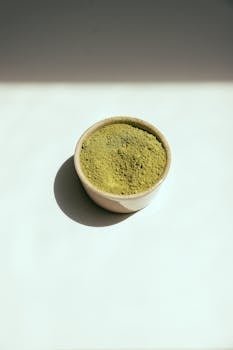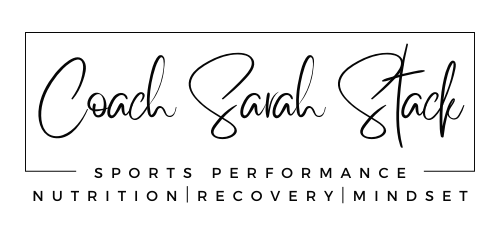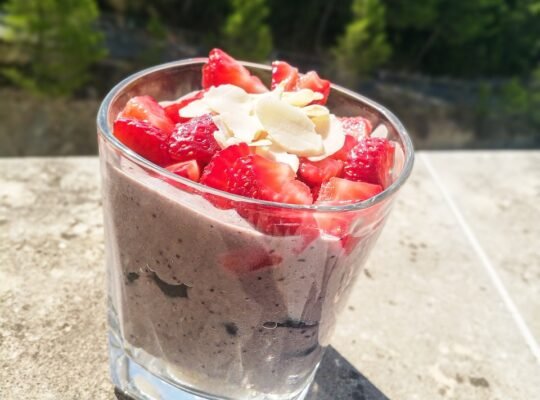I’m tackling a topic that often stirs up debate: supplement use in teen athletes, specifically those designed to enhance exercise and performance. It’s a nuanced discussion, primarily because many such supplements carry a label stating “not for use by anyone under the age of 18.”
This warning isn’t arbitrary. It stems from limited research on the effects of these supplements in minors due to legitimate ethical considerations. Conducting research involving children requires navigating strict guidelines, including ensuring informed consent, conducting rigorous risk-benefit assessments, confirming the research cannot be done on adults, and ensuring the risk is no greater than what minors encounter in normal life. Due to these guidelines, and requirements and reviews by Institutional Review Boards (IRBs) and the FDA research regulations, there simply isn’t a robust body of evidence proving that certain supplements are unequivocally safe for individuals under the age of 18.

When researching supplement use in minors, four recurring concerns consistently emerge:
- Limited research (as discussed).
- Unknown long-term effects on growth and development.
- Potential for overuse.
- Potential hormonal interactions.
These are all valid concerns that deserve our full attention.
Point of Consideration: A Look at Some of Our Everyday Choices
Before diving into specific supplements, let’s consider something many teens consume regularly: fast food and junk food. While discussing fast food and supplements together may seem like comparing apples and oranges, I’m more concerned with the behaviors of accepting fast food consumption and questioning supplement use. Unlike performance supplements, there are no FDA regulations prohibiting minors from eating fast food and junk foods, nor are there warning labels. Fast food is readily available and often more convenient than fresh, whole foods. While we do not have conclusive research on the impacts of certain supplement use by minors, we do have extensive research on the known health impacts of consuming fast food and junk food on a regular basis. Keep those four concerns mentioned above about supplements in mind as we review these known effects:

- Obesity and Metabolic Disorders: Regular consumption can lead to obesity, which in turn increases the risk of metabolic disorders like Type 2 diabetes (the incidence of which is increasing faster in youth than Type 1 diabetes) and elevated blood pressure and cholesterol. Did you know that one in 25 kids aged 12-19 currently has high blood pressure?
- Cardiovascular Issues: Clogged arteries and an increased risk of heart disease later in life are known long-term effects.
- Nutritional Deficiencies: Fast food and junk food often lack essential nutrients, directly impacting long-term growth, development, and hormonal health.
- Blood Sugar Spikes and Crashes: The nutritional profile of fast food can cause mood swings, irritability, difficulty concentrating, and chronic blood sugar imbalances that may lead to elevated cortisol and disrupted sex hormone balance, particularly in females.
It’s a stark contrast: we have extensive knowledge of the negative long-term impacts of fast food, yet it carries no warnings for minors. This is the lens through which I approach the following discussion on supplements.
Four Supplements Worth Discussing for Teen Athletes
While it’s crucial to consult with a pediatrician or a human physiologist before starting any supplement routine, let’s explore four supplements that are often researched in the context of athletes and their potential benefits. Given that teenage girls are more physiologically similar to adult women than to teenage boys (especially after puberty, with respect to hormonal changes and body composition), research on women’s responses to these supplements is highly relevant to this discussion.
1. Protein Powder
Protein is vital for muscle growth and repair, especially post-workout. For women, in particular, ingesting protein soon after exercise optimizes the absorption of amino acids. Protein powder is a very convenient way for athletes to get a quick 20-30 grams of protein immediately after a training session, supporting recovery and muscle development.
2. Greens Powder

Many teenagers (and adults!) struggle to consume the recommended two cups of fruit and three cups of vegetables daily. Fruits and vegetables are rich in essential vitamins (A, C), electrolytes (potassium), folate (for brain health), and antioxidants (to combat exercise-induced waste by-products). A high-quality greens powder can effectively bridge this nutritional gap, acting as a valuable performance supplement.
3. Electrolytes
Electrolytes are essential for maintaining proper fluid balance, which supports muscle and nerve function, energy production, and body temperature regulation. While sports drinks like Gatorade and Prime (which are popular among youth) are technically electrolyte supplements, they often contain high sugar and artificial sweeteners.
For teen athletes, especially those engaged in prolonged, intense exercise (an hour or more in hot, humid conditions), or female athletes during their menstrual periods that can lead to fluid and electrolyte loss, discussing using a low-sugar, artificial-sweetener-free electrolyte powder with a doctor might be beneficial. Whole foods like bananas, avocados, and coconut water also provide electrolytes, but typically not enough for intense exercise in a typical serving.
4. Creatine
Creatine is one of the most extensively studied and proven supplements, widely recognized as safe and highly beneficial, especially for women. Naturally produced in our bodies and found in red meat and seafood, creatine plays a vital role in energy production for high-intensity, short-duration activities like weightlifting and sprinting. It has been proven to aid in increased muscle strength and power, and has even been linked to brain health and improved cognitive function.
Why Creatine is Particularly Relevant for Females:
- Women generally have a lower baseline of creatine than men, meaning they often see a more significant impact from supplementation.
- Hormones, particularly estrogen, influence creatine production and storage. When estrogen levels are lower (e.g., before a period), energy levels and muscle function can be negatively affected. Creatine supplementation can positively impact these areas.
- Research suggests creatine may support hormonal health by reducing oxidative stress, which can interfere with sex hormone production and even contribute to irregular cycles.
- Creatine also plays a role in cognitive function, which can be influenced by hormonal changes throughout the menstrual cycle.
Labels, Testing, and Your Role
The FDA’s role in the supplement industry doesn’t really kick in until products hit the market. The responsibility for safety and accurate labeling lies primarily with the manufacturer. Supplements do not require FDA approval before being sold. The FDA can take action if a supplement already on the market is found to misrepresent what is in the supplement, or if there are false claims associated with that supplement.
Therefore, when considering supplements, it’s critical to look for:
- Third-Party Testing Seals: Because the FDA doesn’t pre-approve supplements or verify label claims, third-party testing is essential. For athletes, look for NSF Certified for Sport or Informed-Choice seals. These agencies test for banned substances and verify that what’s on the label is actually in the bottle. You can read more about third party seals here and here.
- Supplement Facts label: Similar to nutrition labels, the supplement facts label details dietary ingredients (ingredients that are intended for nourishment and have nutritional value) and non-dietary ingredients (binders, fillers, flavorings, etc.). Be aware that any allergic reactions might be to non-dietary ingredients, rather than dietary ingredients. If you read the supplement facts label and identify a third parts testing seal, you can feel confident that you know what you are putting into your body. You can learn more about FDA supplement labeling here.
The Bottom Line
The decision to use supplements is deeply personal. The concerns surrounding their use in teen athletes are legitimate and deserve careful consideration. It’s worth noting the double standard: we protect minors from untested supplements but allow them unrestricted access to fast food with known detrimental effects.
Protein powder, greens powder, electrolytes, and creatine are effective supplements for athletes, with noted benefits for women. However, this information is not medical advice. Always discuss any supplement routine with your teen’s pediatrician or a human physiologist. Pediatricians focus significantly on maintaining children’s health, making their insight invaluable. Human physiologists study how healthy bodies function optimally, offering a performance-focused perspective.
Ultimately, educating ourselves and our athletes, modeling healthy behaviors, emphasizing health and strength over appearance, and normalizing conversations about nutrition and bodily functions are our most powerful tools. These conversations empower our girls to understand their bodies and make informed choices for their health and performance.






